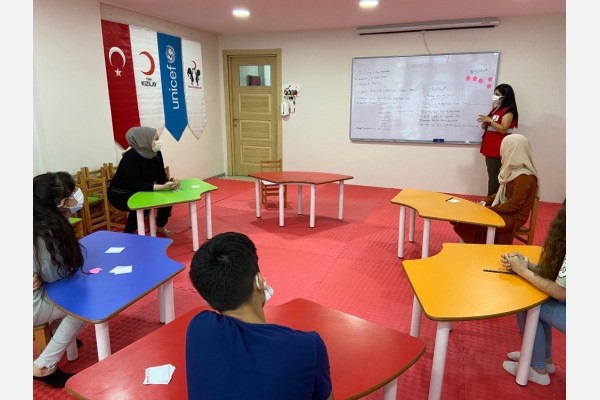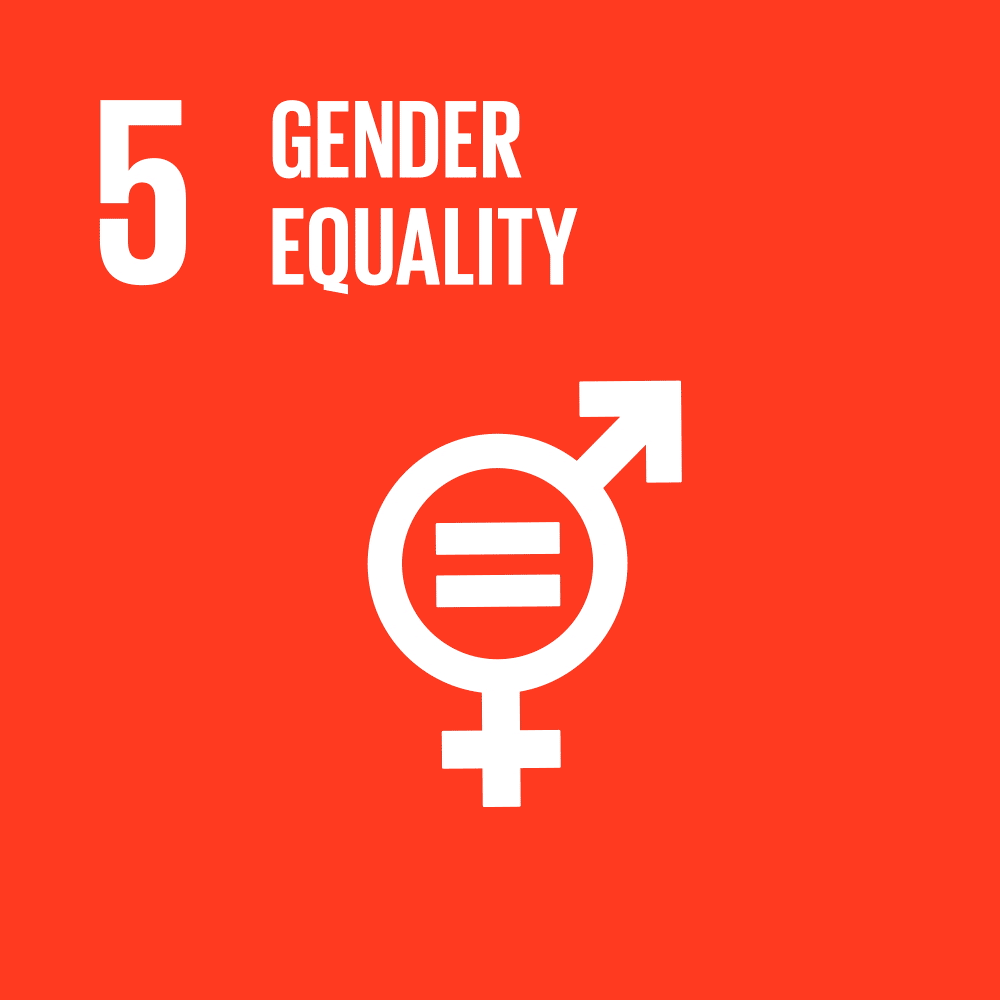Repository of Practices

Youth Decide and Lead Together
Secondary GCM Objectives
Dates
Type of practice
Summary
One of the ideals of the Turkish Red Cross (TRC) Child Program for its beneficiaries is to go beyond the notion of the “participant” and to help our beneficiaries, especially migrant and refugee young, become active subjects in the topics related to them. This program was created in 2013 in order to help the adolescents to regulate their social relations and become active subjects in the matters affecting themselves and their communities, and to deal with the problems coming from puberty a threefold. The program includes Leadership and Volunteerism trainings, Youth Advisory Board and Voluntary works. Youngsters from migrant and refugee communities and from host communities aged 14-17 can attend to the programs and take Leadership and Volunteerism trainings.
Leadership (5 activities) and Volunteerism (15 activities) programs have a training period and require participants to develop social projects and implement them with supervision of TRC professionals. After completing the necessary training, the attendees become active volunteers and are expected to join the activities conducted with children as volunteers with some responsibilities. Through the peer education model, it is targeted to ensure that youngsters aged 14-18 participate in various activities as volunteers to develop their leadership characteristics and to be role models for their peers. Moreover, these volunteers become members of Youth Advisory Board which is conducted by adolescents and young people in order to learn needs, demands and suggestions of the society that TRC serves. Program is established in order to get their opinions on issues and to offer them the opportunity to shape the processes, especially by conducting advocacy activities and volunteerism. Board members come together in a monthly period, discuss current problems in their societies, seek solutions, and prepare work plans for them with supervision of TRC professionals.
Organizations
Main Implementing Organization(s)
Benefit and Impact
An impact analysis report prepared by independent academicians based on the pre-test and post-test results of the program and focus group discussions and individual interviews conducted with volunteers, their families and TRC Youth Workers show that the programs have positive effects on the participants in developing self-confidence, communicating better with the people around them, being open to cooperation, developing leadership qualities and problem solving skills, being able to look at different lives without prejudices. Families of the volunteers also stated that after becoming volunteers they have undergone a positive change in relations with their families.
Through the program migrant young realise their abilities, rights and the ways they can solve their problems. Since the program is conducted with the participation of men and women volunteers, and they volunteer together at a sphere that is not constructed with widespread stereotypes of gender roles; they become aware of gender inequality. Some of the active women volunteers have stated in the focus group discussion or individual interviews that before taking part in volunteering they didn’t have a clear picture about future as they thought they wouldn’t do much as women. However, the program helped them to realise their power and what they can actually do. Moreover, participants from migrant and host communities find a platform to work together for common goals and it helped social cohesion.
The Leadership and Volunteering Program was presented to the “Youth on the Move” Award 2019 Competition organized by the IFRC with the title of “Volunteering Program as a Part of the Psycho-Social Support Program for Youth” and won the first prize in the competition.
The program has a dynamic structure as is been revised according to the needs of the field and the feedback taken from the participants and implementer.
Key Lessons
Another challenge faced in the implementation of the program is caused by cultural differences. Sometimes participants have difficulty to deal with differences and work together with children form other gender or nationalities. Organising socio-cultural events, empathy related activities and providing platforms that would enable them to learn from each other make it easier for them to work with different cultures.
Recommendations(if the practice is to be replicated)
Role and responsibilities of the volunteers should be determined thoroughly and should be stated to the volunteer candidates during the trainings. On the other hand, the responsibilities of the institution and what can be provided to the volunteers should be clear as well. Volunteers should be informed if they will receive any financial support or not.
Some modules should be added to the training according to the area in which a volunteer is expected to work. For instance during the Volunteering Training at Child Program includes contents that would support the volunteer in the area s/he is expected to work such as communication with children, working with disadvantaged children, presentation preparation, material preparation, time management.
It could be very effective to conduct some activities in order to strengthen the motivation of volunteers. Trips to historical or natural places, picnics, camps or other kinds of sociocultural activities have a positive effect on volunteers and it help them to strengthen friendship among themselves as well.
Lastly, it is essential to constitute a compliance mechanism against any possibility of sexual exploitation and abuse of both children and volunteers. The volunteers and beneficiary children should be informed about this mechanism in an appropriate way.
Innovation
The program provides a very well structured way of peer learning and since this model has proven to be effective it led Child Program to increase the number of the programs implemented in such model. For instance, Mentorship Program which is based on peer learning among college students and the children are at the risk of dropping out of school and early marriage has been being implemented since 2019.
Although Covid-19 pandemic the lockdowns made it hard to conduct the trainings, online tools were introduced to the participants and the trainings were implemented in such ways. Since the content and implementation of training modules requires active participation of the participants and their interaction among themselves it became necessary to do some revisions in the content in order to make it compatible with online tools and still attractive for the participants. Moreover, the content revised for the social distanced implementation as well. This show that program is sustainable and it could be implemented in different conditions. All the volunteers impact analyses of the program (who joined to the focus group discussions or individual interviews) have stated that the program has vital and lifelong impacts on them and they would continue volunteering in the future as well.
Date submitted:
Disclaimer: The content of this practice reflects the views of the implementers and does not necessarily reflect the views of the United Nations, the United Nations Network on Migration, and its members.
Peer Reviewer Feedback:
*References to Kosovo shall be understood to be in the context of United Nations Security Council resolution 1244 (1999).
Newsletter
Subscribe to our newsletter.

